Our weekly tillage feature From the tramlines returns for 2019. Ireland’s tillage sector spans across 31 counties north and south. Every area has its own unique challenges, largely defined by climate, markets and soil type and requires a different management approach for each. One of the core aims of From the tramlines is to demonstrate this and give readers real time, on the ground updates from Ireland’s tillage fields. Over the next 40 weeks we’ll be following 12 of Ireland’s top growers from all around the island and follow the management decisions and cropping progress on each of those farms.
10 new growers
This year we welcome back Andrew Bergin from Co Kildare and Simon Best from Co Down, who took part in the feature last year. In addition to these, we have 10 brand new growers on board for this year, who span the length and breadth of the country. This year’s growers are growing a diverse portfolio of crops including cereals, brassicas, potatoes, fodder crops and field vegetables. We will follow the progress of all of these crops as well as the key agronomy decisions growers are making. Soil types range from very light and sandy to heavy and peaty soils across all 12 farms and as a result, establishment methods range from plough based, to min-till to direct drill.
Tramline conversations
A new feature to this year’s From the tramlines are the tramline conversation pages. At the end of the season, each week we will pick one aspect of crop management from 2019 and have a conversation with all 12 growers about it.
An example of some of the topics which will be discussed include fungicide programmes, weed control strategies, crop nutrition and soil improvement plans. We will have a conversation with growers about what did and didn’t work in 2019, and what could we do better in 2020.
Irish Farmers Journal weather
This year the Irish Farmers Journal have teamed up with Sencrop, a French based weather station manufacturer and plan to place weather stations on all 12 tramline farms. In the coming weeks, readers will be able to access live and historical weather data from those stations on the Irish Farmers Journal website.
As well as live weather data, readers can access additional digital tramline content such as videos and audio through our website or our mobile app.

Ronan Snow
Swords, Co Dublin
Ronan grows just over 800 acres of crops including winter wheat and barley, winter oilseed rape, spring malting barley and spring beans. He also grows vegetable crops including potatoes, celery, cabbage, broccoli and early swedes. Around 95% of the farm is rented and he runs a ploughbased system.
Most the cereals go for feed and they pack some of their potatoes themselves. He has storage for around 750 tonnes of potatoes on farm. He farms with his two brothers Terence and Mark. All three took over from their father Willie. He is a member of the Final Reapers discussion group and he also runs Drynam Park Golf Centre.

David Moody
St. Johnston, Co Donegal
David farms in east Donegal and is currently growing winter barley, wheat and oats. Around 60% of his rotation is winter crops. He plans on sowing spring barley and wheat this spring.
All of these crops are destined for the feed market. David sells to both merchants and directly to farmers. He dries or propcorns and rolls his own grain and sells in both bulk and in bags.
He farms on medium to heavy soil types and operates a plough-based system. He farms along with his father John, and is a member of a Teagasc tillage KT discussion group and Macra na Feirme.
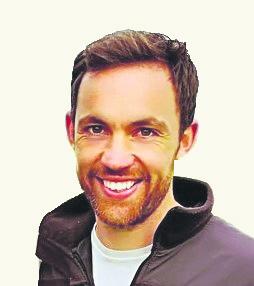
Rob Coleman
Castlemagner, Co Cork
Rob’s winter crops consists of a 50:50 split of winter wheat and barley. Around one fifth of the farm will be sown with spring beans and barley this spring, and all crops are destined for feed. Soil types on the farm consist of mainly limestone loam. The farm was in minimum tillage for 18 years and he is now in transition to direct drilling and conservation agriculture. Around 75% of the farm is owned, while the rest is on long-term lease.
Rob is a member of BASE Ireland and a member of the Cahir or ‘Survivors’ discussion group. Farming alongside his father Billy, they also lamb around 150 ewes and run a calf-to-beef finishing system.
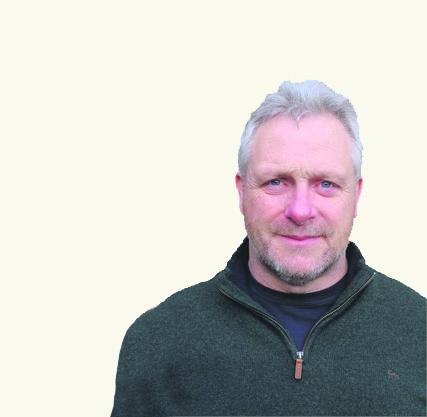
Andrew Bergin
Athy, Co Kildare
Andrew returns for a second year to the tramlines. Farming on light sandy loam soils in Athy, Andrew runs a direct-drill system.
He farms on mostly owned ground and is growing winter wheat for feed and winter barley and oats for seed.
This year, he plans to sow spring malting and seed barley, spring peas and a small amount of beans. The malt is destined for Boortmalt, the seed for Glanbia and the peas for Batchelors. He is a member of a long-running Athy tillage discussion group and BASE Ireland.
He is also involved with the Danú Farming project, which looks at the transition into biological farming.

Mark McCurdy
Bushmills, Co Antrim
Mark farms on medium loam soils just outside of Bushmills in Northern Ireland. This year he’s growing around 30 acres of winter barley and plans to sow 40 acres of spring barley, all of which goes for feed. He also grows 10 acres of earlies, 15 acres of late earlies and 105 acres of main crop potatoes.
He washes and packs his own produce and sells them as McCurdy Potatoes to local shops.
Running a plough-based system, most of the potato ground is taken on a conacre basis. Farming with his father Dan and brother Jonathan, he also finishes 140 beef cattle each year. He is also a member of the BDG potato group.

James O’Reilly
Ballyragget, Co Kilkenny
James splits his farm into five blocks, which each consist of either winter barley, winter oilseed rape, first winter wheat, spring or winter oats and first winter wheat again.
Most of the grain is destined for feed, the majority of which goes to Red Mills who they’ve been working with for years.
Around one third of the farm is owned while the remainder is on long-term leases. The farm has been min-tilled for 19 years and soil types range from medium to heavy loam with a high silt content.
He is a member of the long running Cahir or ‘Survivors’ discussion group. James farms alongside his parents Larry and Anne.

Vivion Tubritt
New Ross, Co Wexford
Farming on the foot of the Hook Head Peninsula, Vivion grows winter barley, wheat, oats and winter malting barley. He plans to sow spring malting barley and main crop potatoes this spring. Most of the grain goes for feed, while the malting crop goes to Boortmalt. He grows Rooster potatoes for O’Shea’s in Kilkenny and doesn’t store the crop. He runs both plough-based and min-till systems on a mixture of dry, sandy and Clonroche series soils. He generally grows 400 acres of cereals and 50 acres of potatoes each year, around half of which is on rented ground. He is a focus farm of the Boortmalt/Teagasc malting barley programme.

Chris Bourns
Eyrecourt, Co Galway
Chris farms on predominately heavy ground. He grows just under 600 acres of crops, including winter and spring barley and wheat, and around 170 acres of fodder beet. All crops are destined for feed. Around half of his ground is family owned and the rest is rented. He runs a plough-based system but aims to min-till some of his crops each year. Lisbeg Farm is a family run business and Chris farms alongside his wife Sarah, brother Andrew, father Richard and mother Deirdre. As well as tillage, they also lamb 1,500 ewes and finish 2,000 bulls under 16 months. Chris also covers around 250 aces of tillage contract work each year. He is an ITLUS member.

Paul O’Connell
Ballybrittas, Co Laois
This year Paul is growing winter barley and wheat. He plans to sow spring wheat and has decided to drop spring beans from the rotation.
All of the grain is dried on the farm and is destined for the feed market.
Farming alongside his father Dan, he operates a plough-based system, but some of his crops were min-tilled last year. Paul farms on a mixture of soil types ranging from light to heavy soils.
He farms on a lot of low-lying ground, which would have a high clay content. He is farming across 850 acres, with around a third of this on long-term leases.
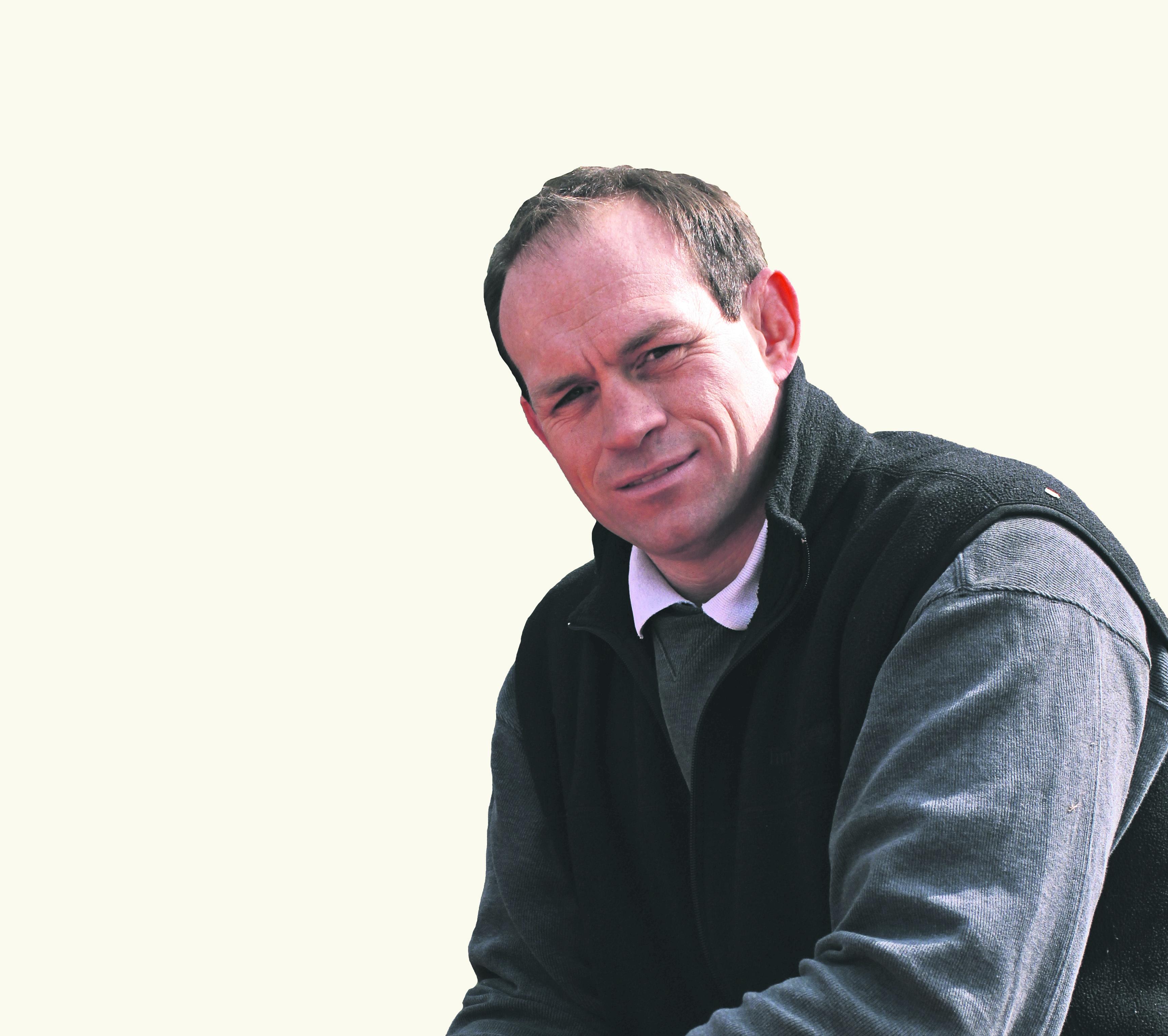
Simon Best
Poyntzpass, Co Down
Simon returns to From the tramlines for a second year. Simon farms in Poyntzpass, which is located on the D own/Armagh border. Like most areas, it has enjoyed a kind winter and winter crops are looking good. Simon farms on medium loam soil growing winter wheat, winter and spring oats for Whites Oats, winter oilseed rape and spring beans. He farms alongside his father John and brother Rory across 1,200 acres and his farm is LEAF Marque accredited. They also run a pedigree Angus herd, a green waste composting business and produce willow for biomass. Simon is a member of a CAFRE Arable Business Development Group.
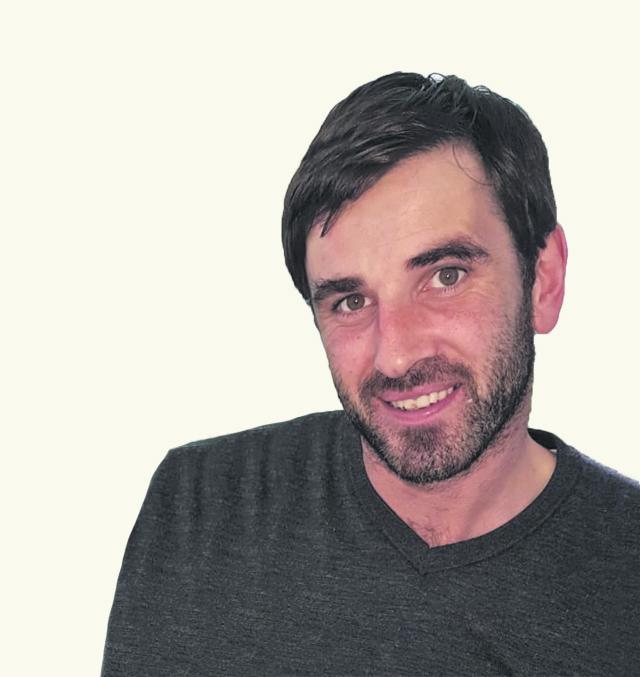
John Galvin
Croom, Co Limerick
John farms on a mixture of soil types ranging from free draining loam to heavy clay.
Farming just south of Limerick city, this year he’s growing winter barley and winter wheat and aims to sow spring barley and maize this spring. All crops are destined for feed and some of the crops will be crimped.
The crimped straw will also be put into a separate pit. John runs both a plough-based and min-till establishment system, depending on the year.
Around 30% of the land which he covers is rented. The farm is a family run business and they also finish cattle, including stores and calves.
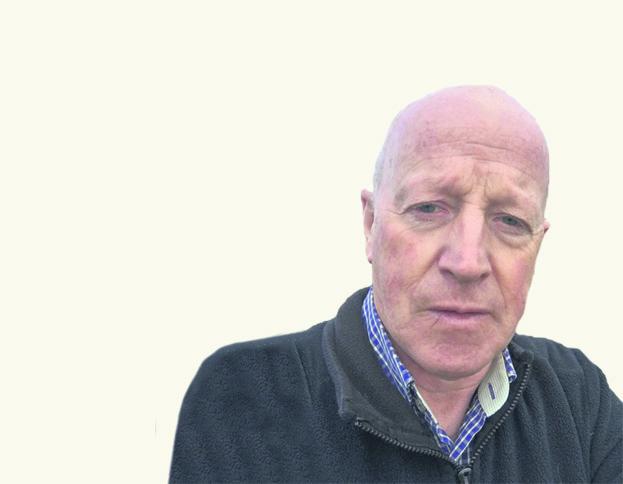
Donal O’Keeffe
Delvin, Co Westmeath
Farming on medium loam soil in Westmeath, Donal’s winter cropping regime consists of winter wheat, barley, oats and oilseed rape. He plans on sowing spring barley and maize this spring. A large proportion of these crops go for seed which requires rigorous machinery hygiene, record-keeping and weed control.
Donal runs a plough-based system but min-tills when conditions allow. He’s also trialling out a direct drill this spring.
He farms around 300 acres, half of which is owned and the remaining is share farmed. He also harvests around 200 acres on contract. He runs a calf-to-beef finishing system and is an ITLUS and IFA member.
Read more
From the tramlines year review: late start, tough middle, good end
From the tramlines: time for machinery maintenance and repairs
Our weekly tillage feature From the tramlines returns for 2019. Ireland’s tillage sector spans across 31 counties north and south. Every area has its own unique challenges, largely defined by climate, markets and soil type and requires a different management approach for each. One of the core aims of From the tramlines is to demonstrate this and give readers real time, on the ground updates from Ireland’s tillage fields. Over the next 40 weeks we’ll be following 12 of Ireland’s top growers from all around the island and follow the management decisions and cropping progress on each of those farms.
10 new growers
This year we welcome back Andrew Bergin from Co Kildare and Simon Best from Co Down, who took part in the feature last year. In addition to these, we have 10 brand new growers on board for this year, who span the length and breadth of the country. This year’s growers are growing a diverse portfolio of crops including cereals, brassicas, potatoes, fodder crops and field vegetables. We will follow the progress of all of these crops as well as the key agronomy decisions growers are making. Soil types range from very light and sandy to heavy and peaty soils across all 12 farms and as a result, establishment methods range from plough based, to min-till to direct drill.
Tramline conversations
A new feature to this year’s From the tramlines are the tramline conversation pages. At the end of the season, each week we will pick one aspect of crop management from 2019 and have a conversation with all 12 growers about it.
An example of some of the topics which will be discussed include fungicide programmes, weed control strategies, crop nutrition and soil improvement plans. We will have a conversation with growers about what did and didn’t work in 2019, and what could we do better in 2020.
Irish Farmers Journal weather
This year the Irish Farmers Journal have teamed up with Sencrop, a French based weather station manufacturer and plan to place weather stations on all 12 tramline farms. In the coming weeks, readers will be able to access live and historical weather data from those stations on the Irish Farmers Journal website.
As well as live weather data, readers can access additional digital tramline content such as videos and audio through our website or our mobile app.

Ronan Snow
Swords, Co Dublin
Ronan grows just over 800 acres of crops including winter wheat and barley, winter oilseed rape, spring malting barley and spring beans. He also grows vegetable crops including potatoes, celery, cabbage, broccoli and early swedes. Around 95% of the farm is rented and he runs a ploughbased system.
Most the cereals go for feed and they pack some of their potatoes themselves. He has storage for around 750 tonnes of potatoes on farm. He farms with his two brothers Terence and Mark. All three took over from their father Willie. He is a member of the Final Reapers discussion group and he also runs Drynam Park Golf Centre.

David Moody
St. Johnston, Co Donegal
David farms in east Donegal and is currently growing winter barley, wheat and oats. Around 60% of his rotation is winter crops. He plans on sowing spring barley and wheat this spring.
All of these crops are destined for the feed market. David sells to both merchants and directly to farmers. He dries or propcorns and rolls his own grain and sells in both bulk and in bags.
He farms on medium to heavy soil types and operates a plough-based system. He farms along with his father John, and is a member of a Teagasc tillage KT discussion group and Macra na Feirme.

Rob Coleman
Castlemagner, Co Cork
Rob’s winter crops consists of a 50:50 split of winter wheat and barley. Around one fifth of the farm will be sown with spring beans and barley this spring, and all crops are destined for feed. Soil types on the farm consist of mainly limestone loam. The farm was in minimum tillage for 18 years and he is now in transition to direct drilling and conservation agriculture. Around 75% of the farm is owned, while the rest is on long-term lease.
Rob is a member of BASE Ireland and a member of the Cahir or ‘Survivors’ discussion group. Farming alongside his father Billy, they also lamb around 150 ewes and run a calf-to-beef finishing system.

Andrew Bergin
Athy, Co Kildare
Andrew returns for a second year to the tramlines. Farming on light sandy loam soils in Athy, Andrew runs a direct-drill system.
He farms on mostly owned ground and is growing winter wheat for feed and winter barley and oats for seed.
This year, he plans to sow spring malting and seed barley, spring peas and a small amount of beans. The malt is destined for Boortmalt, the seed for Glanbia and the peas for Batchelors. He is a member of a long-running Athy tillage discussion group and BASE Ireland.
He is also involved with the Danú Farming project, which looks at the transition into biological farming.

Mark McCurdy
Bushmills, Co Antrim
Mark farms on medium loam soils just outside of Bushmills in Northern Ireland. This year he’s growing around 30 acres of winter barley and plans to sow 40 acres of spring barley, all of which goes for feed. He also grows 10 acres of earlies, 15 acres of late earlies and 105 acres of main crop potatoes.
He washes and packs his own produce and sells them as McCurdy Potatoes to local shops.
Running a plough-based system, most of the potato ground is taken on a conacre basis. Farming with his father Dan and brother Jonathan, he also finishes 140 beef cattle each year. He is also a member of the BDG potato group.

James O’Reilly
Ballyragget, Co Kilkenny
James splits his farm into five blocks, which each consist of either winter barley, winter oilseed rape, first winter wheat, spring or winter oats and first winter wheat again.
Most of the grain is destined for feed, the majority of which goes to Red Mills who they’ve been working with for years.
Around one third of the farm is owned while the remainder is on long-term leases. The farm has been min-tilled for 19 years and soil types range from medium to heavy loam with a high silt content.
He is a member of the long running Cahir or ‘Survivors’ discussion group. James farms alongside his parents Larry and Anne.

Vivion Tubritt
New Ross, Co Wexford
Farming on the foot of the Hook Head Peninsula, Vivion grows winter barley, wheat, oats and winter malting barley. He plans to sow spring malting barley and main crop potatoes this spring. Most of the grain goes for feed, while the malting crop goes to Boortmalt. He grows Rooster potatoes for O’Shea’s in Kilkenny and doesn’t store the crop. He runs both plough-based and min-till systems on a mixture of dry, sandy and Clonroche series soils. He generally grows 400 acres of cereals and 50 acres of potatoes each year, around half of which is on rented ground. He is a focus farm of the Boortmalt/Teagasc malting barley programme.

Chris Bourns
Eyrecourt, Co Galway
Chris farms on predominately heavy ground. He grows just under 600 acres of crops, including winter and spring barley and wheat, and around 170 acres of fodder beet. All crops are destined for feed. Around half of his ground is family owned and the rest is rented. He runs a plough-based system but aims to min-till some of his crops each year. Lisbeg Farm is a family run business and Chris farms alongside his wife Sarah, brother Andrew, father Richard and mother Deirdre. As well as tillage, they also lamb 1,500 ewes and finish 2,000 bulls under 16 months. Chris also covers around 250 aces of tillage contract work each year. He is an ITLUS member.

Paul O’Connell
Ballybrittas, Co Laois
This year Paul is growing winter barley and wheat. He plans to sow spring wheat and has decided to drop spring beans from the rotation.
All of the grain is dried on the farm and is destined for the feed market.
Farming alongside his father Dan, he operates a plough-based system, but some of his crops were min-tilled last year. Paul farms on a mixture of soil types ranging from light to heavy soils.
He farms on a lot of low-lying ground, which would have a high clay content. He is farming across 850 acres, with around a third of this on long-term leases.

Simon Best
Poyntzpass, Co Down
Simon returns to From the tramlines for a second year. Simon farms in Poyntzpass, which is located on the D own/Armagh border. Like most areas, it has enjoyed a kind winter and winter crops are looking good. Simon farms on medium loam soil growing winter wheat, winter and spring oats for Whites Oats, winter oilseed rape and spring beans. He farms alongside his father John and brother Rory across 1,200 acres and his farm is LEAF Marque accredited. They also run a pedigree Angus herd, a green waste composting business and produce willow for biomass. Simon is a member of a CAFRE Arable Business Development Group.

John Galvin
Croom, Co Limerick
John farms on a mixture of soil types ranging from free draining loam to heavy clay.
Farming just south of Limerick city, this year he’s growing winter barley and winter wheat and aims to sow spring barley and maize this spring. All crops are destined for feed and some of the crops will be crimped.
The crimped straw will also be put into a separate pit. John runs both a plough-based and min-till establishment system, depending on the year.
Around 30% of the land which he covers is rented. The farm is a family run business and they also finish cattle, including stores and calves.

Donal O’Keeffe
Delvin, Co Westmeath
Farming on medium loam soil in Westmeath, Donal’s winter cropping regime consists of winter wheat, barley, oats and oilseed rape. He plans on sowing spring barley and maize this spring. A large proportion of these crops go for seed which requires rigorous machinery hygiene, record-keeping and weed control.
Donal runs a plough-based system but min-tills when conditions allow. He’s also trialling out a direct drill this spring.
He farms around 300 acres, half of which is owned and the remaining is share farmed. He also harvests around 200 acres on contract. He runs a calf-to-beef finishing system and is an ITLUS and IFA member.
Read more
From the tramlines year review: late start, tough middle, good end
From the tramlines: time for machinery maintenance and repairs
















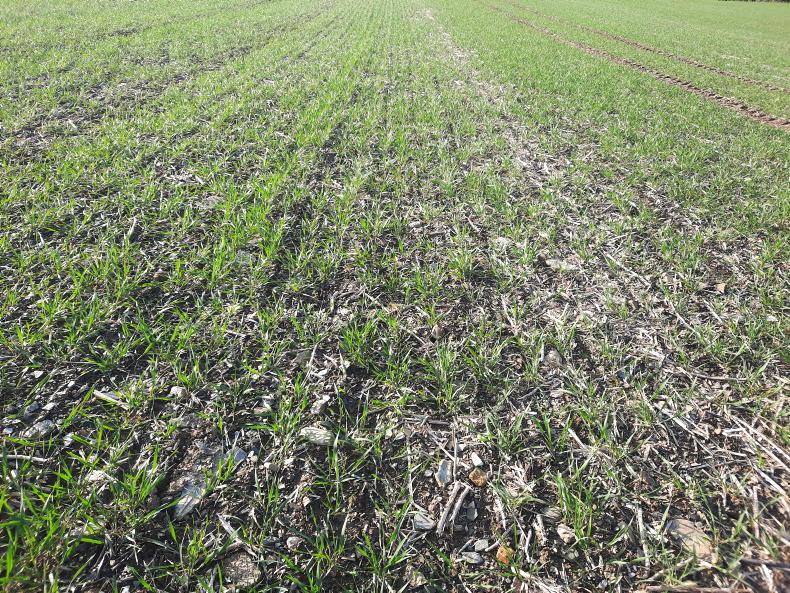
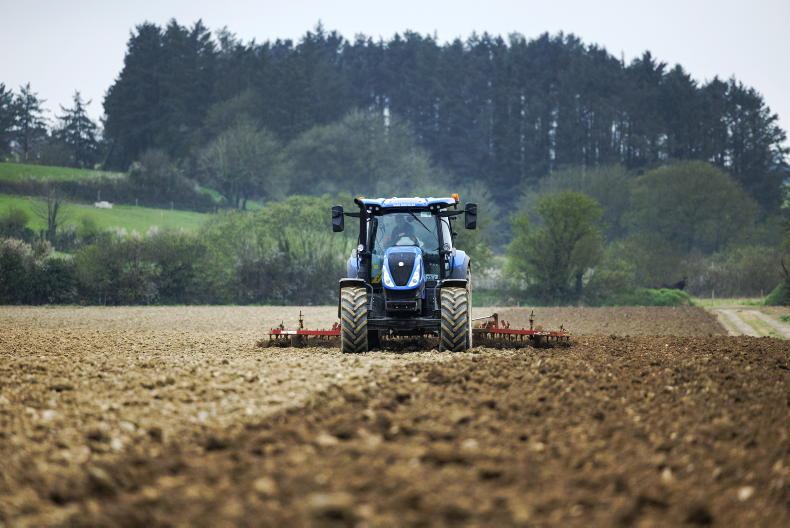
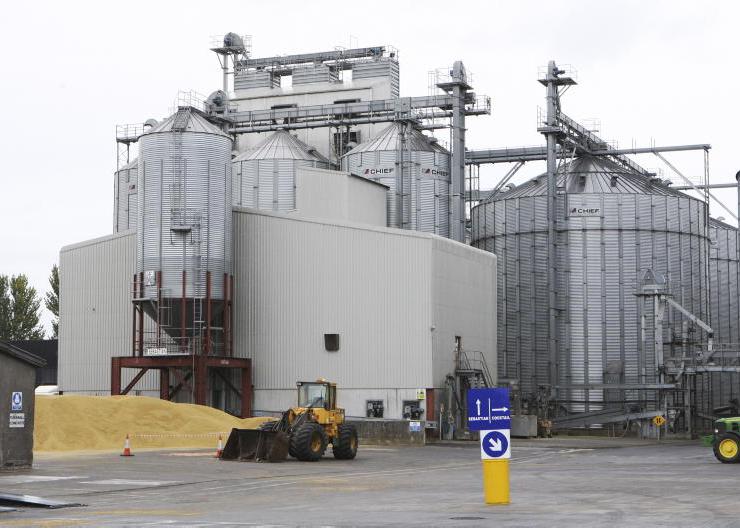
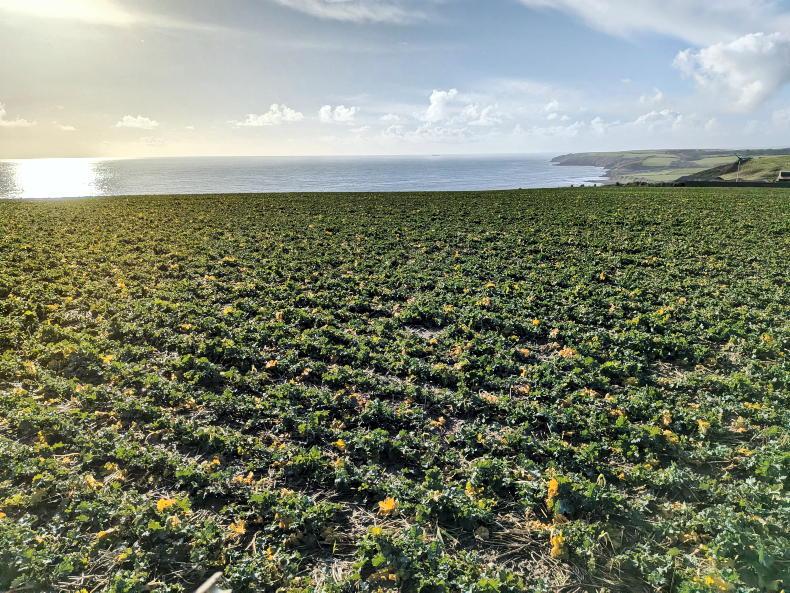
SHARING OPTIONS